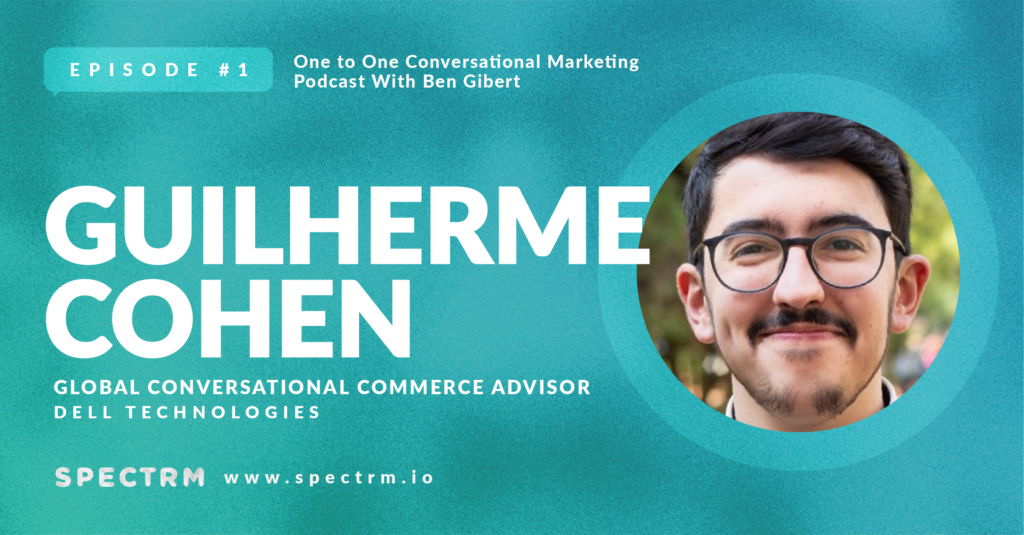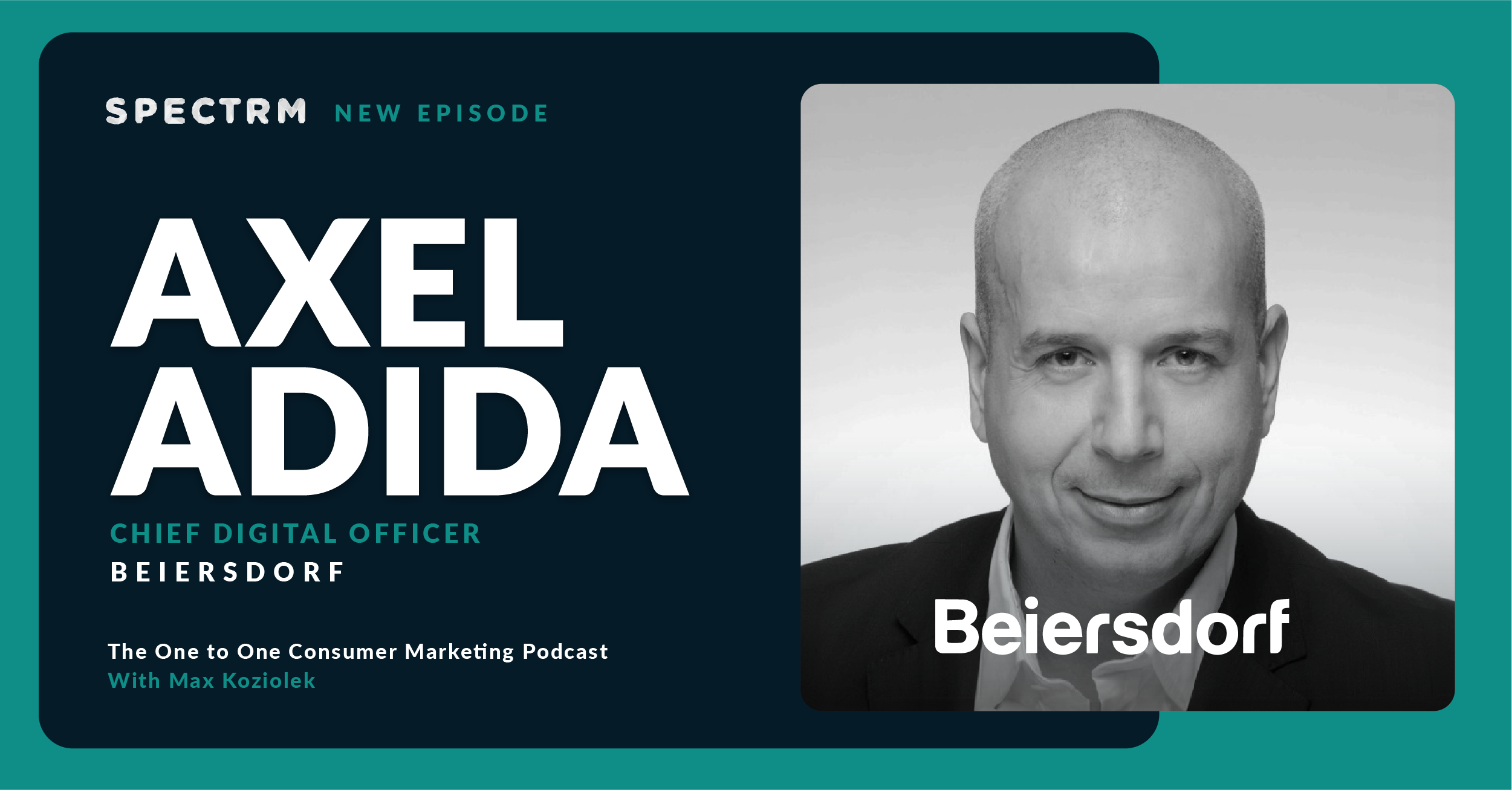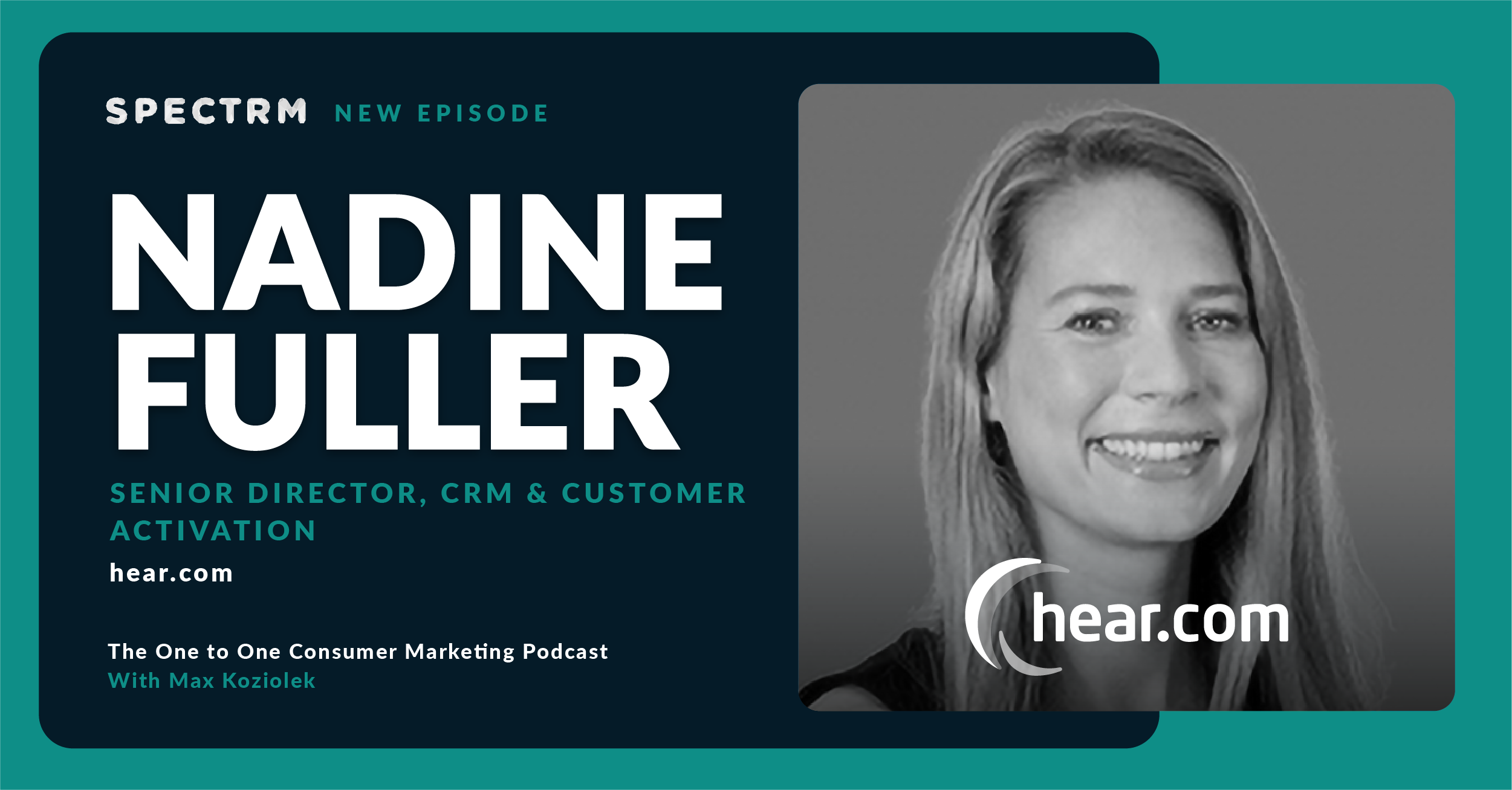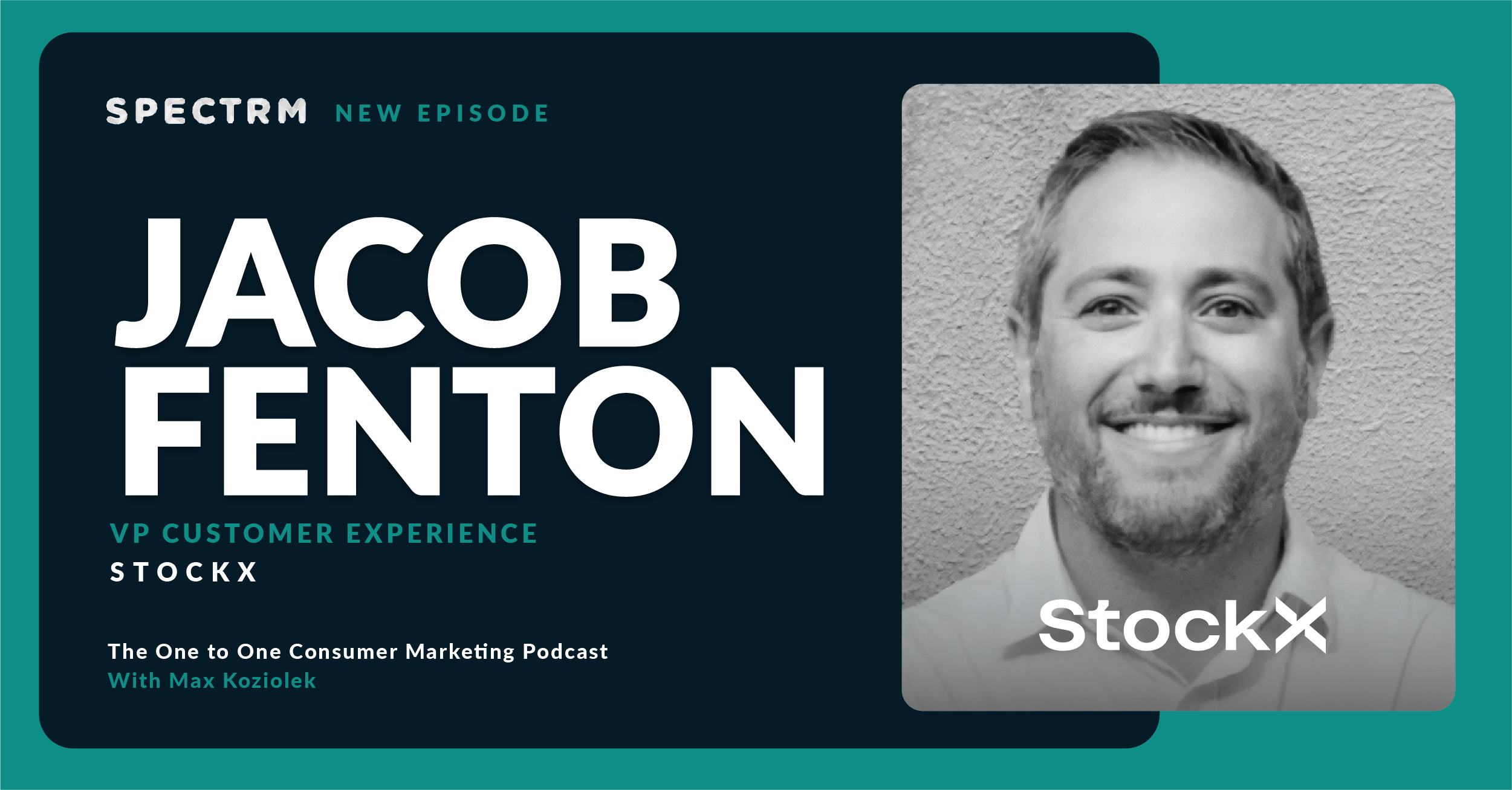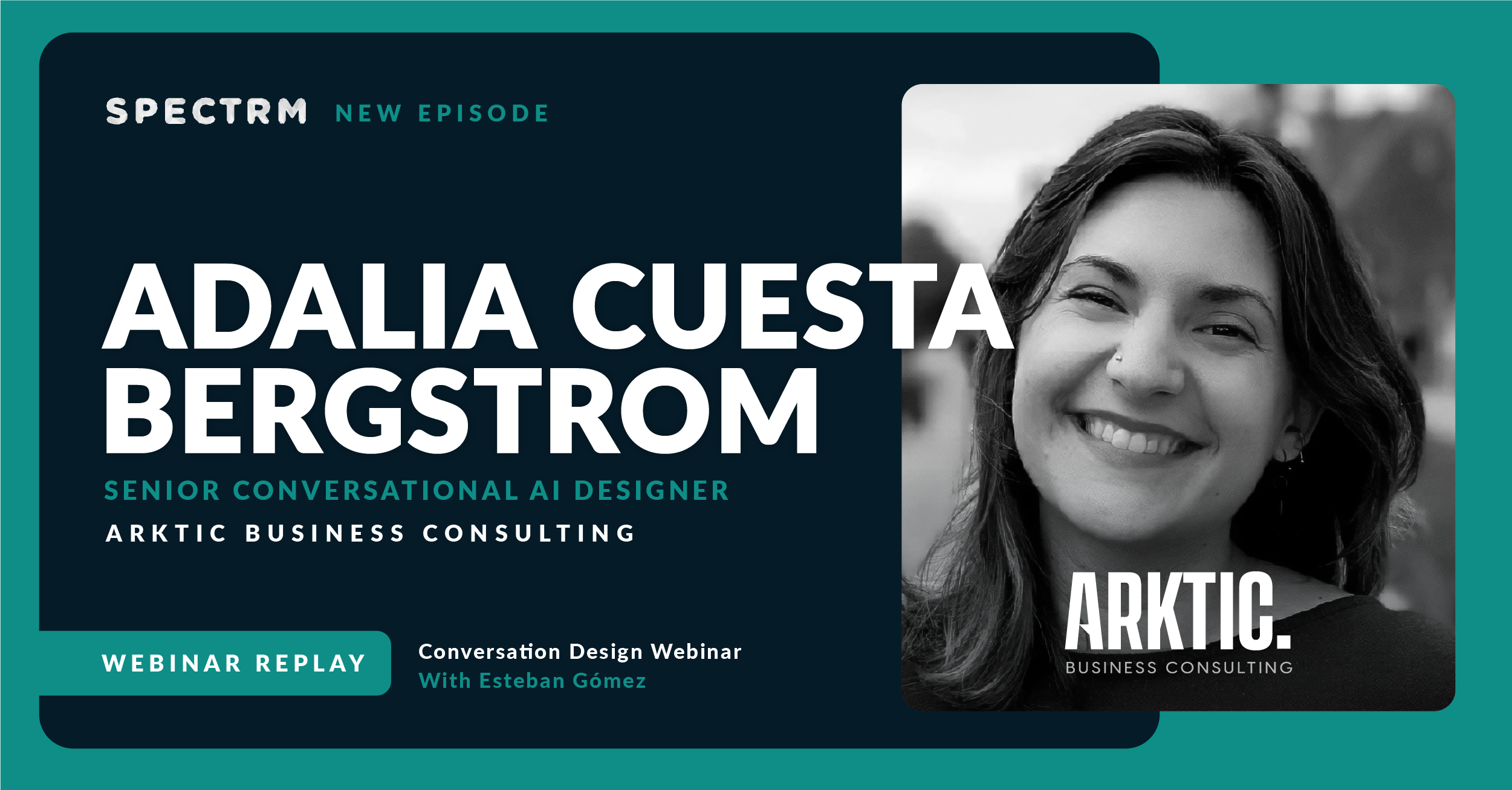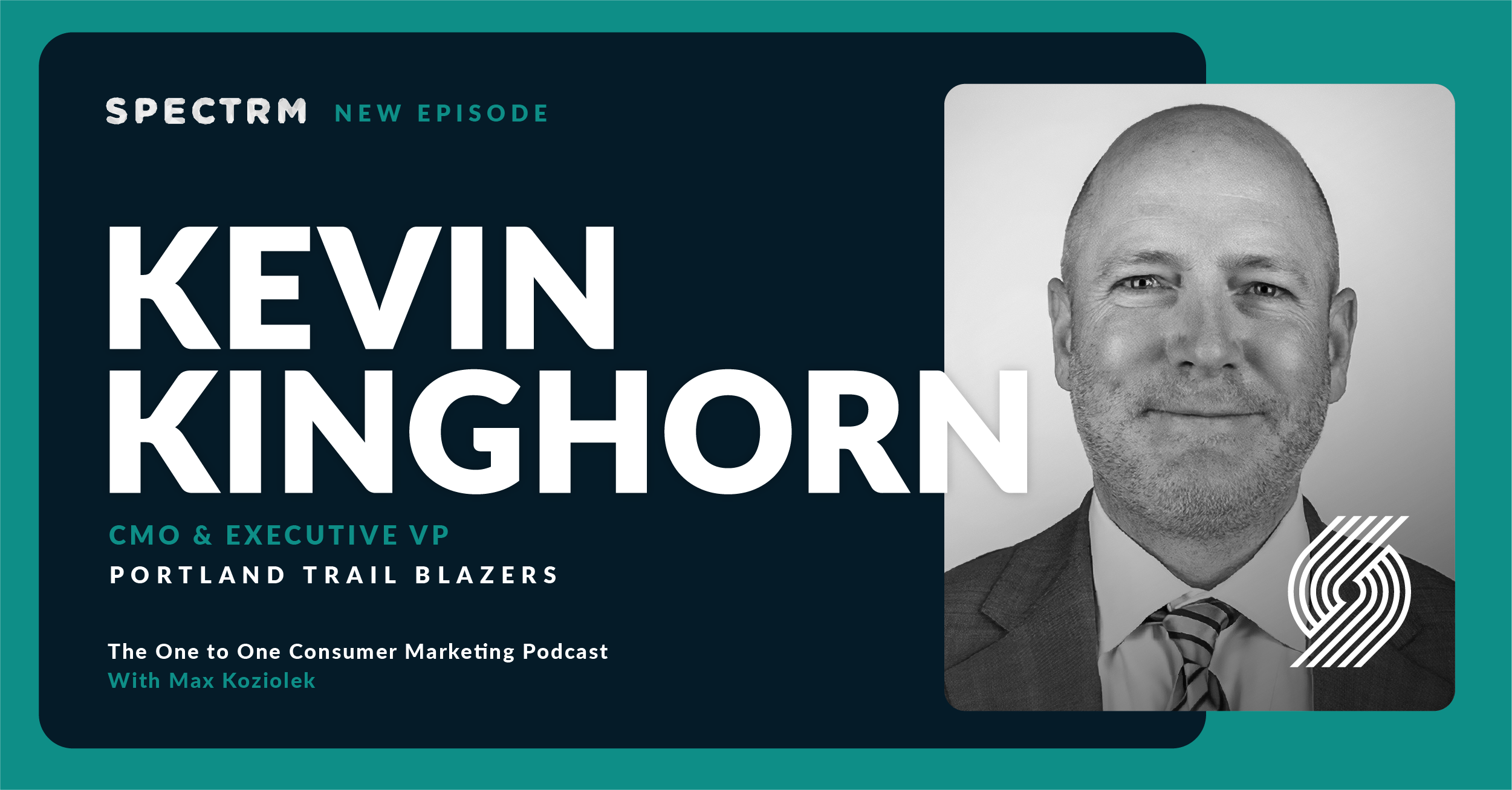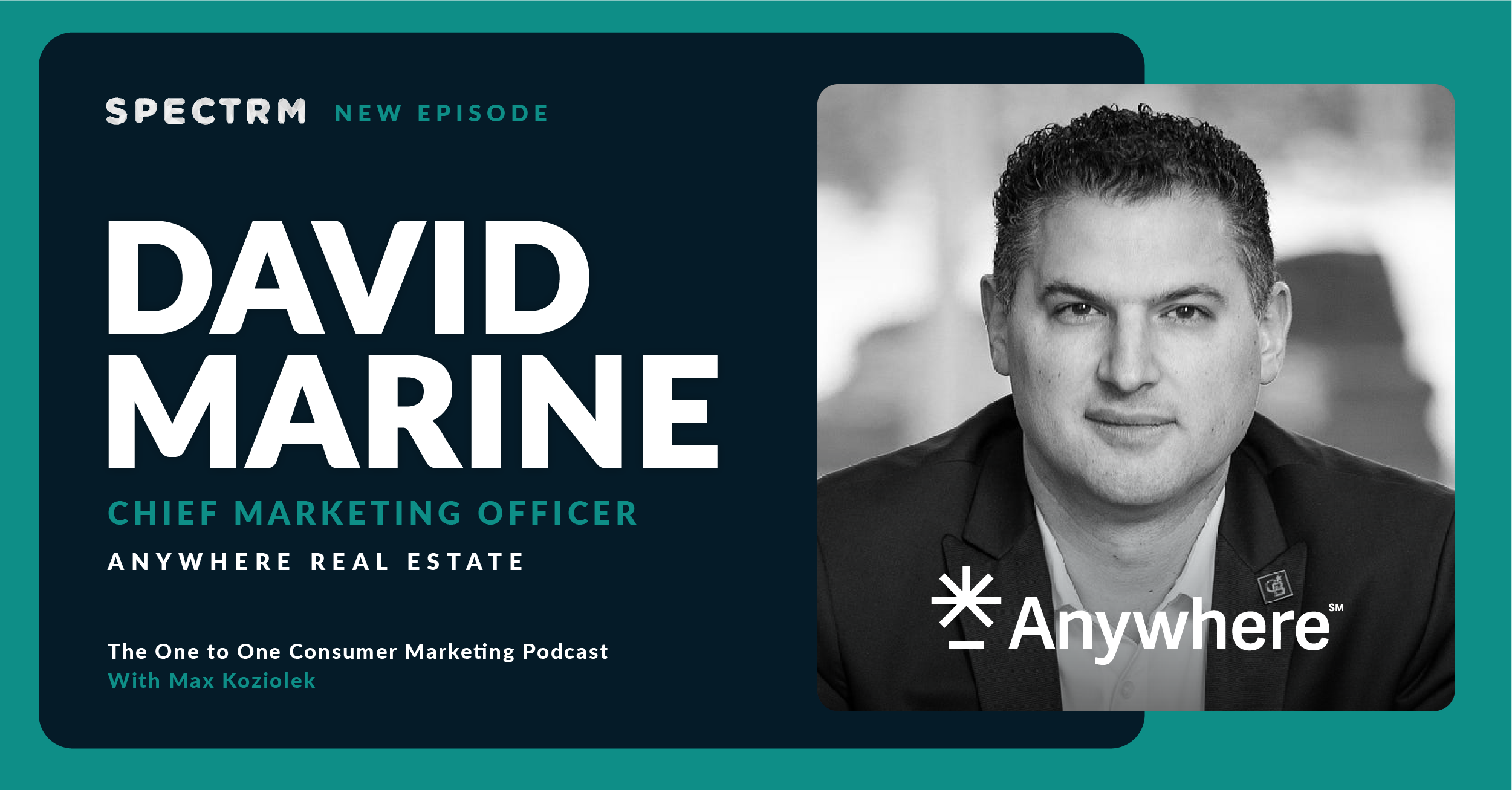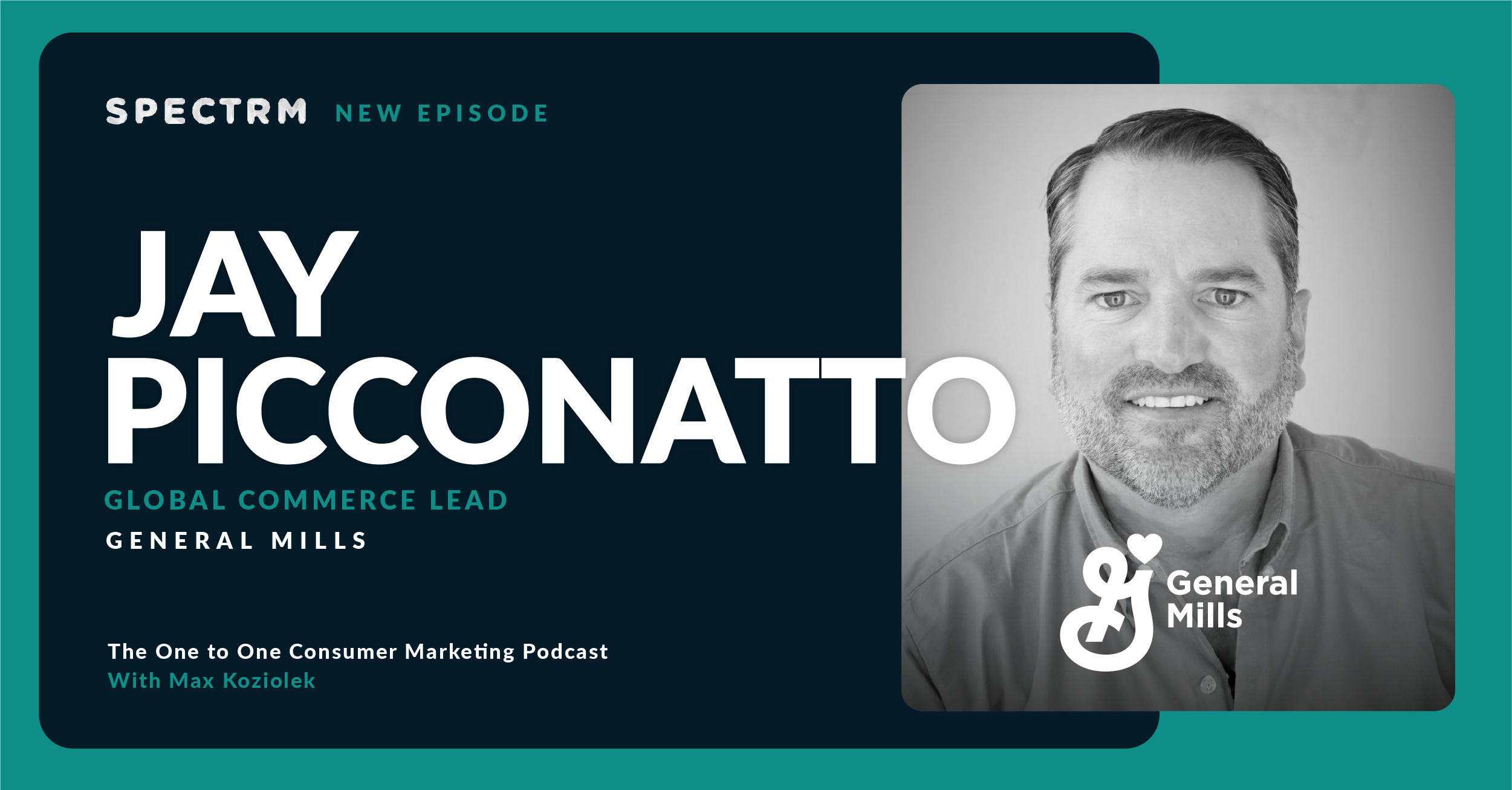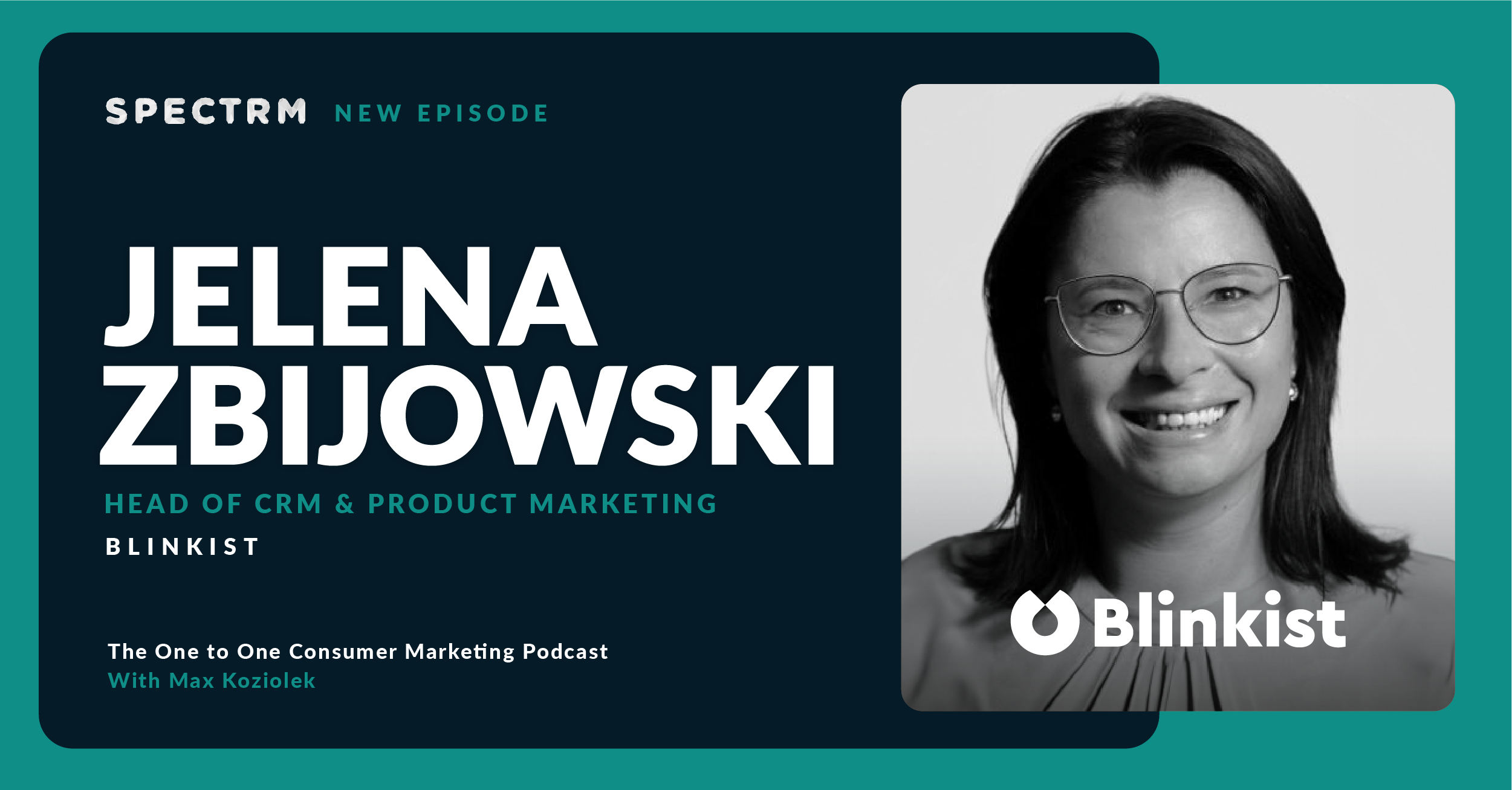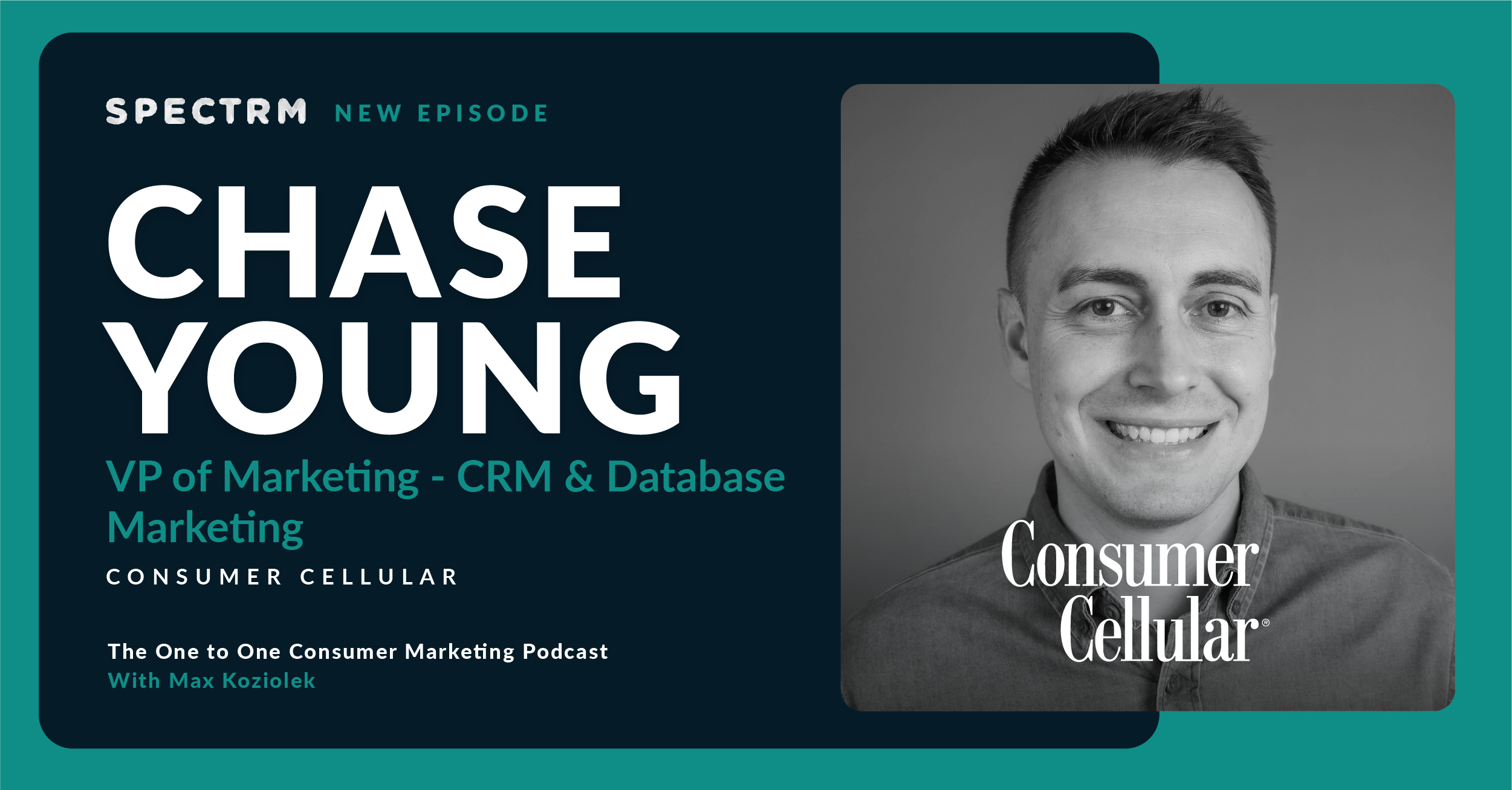Home | Podcasts | Consumer Marketing | Scaling a Conversational Marketing Program
Summary
In our first episode, we speak with Guilherme Cohen, Global Conversational Commerce Advisor for Dell Technologies. Guilherme was responsible for the relaunch of Dell’s Conversational fronts in Brazil, further assisting expansion to 7 more regions across the globe and their development, eventually joining a new organization inside the company as the Global Marketing C-Commerce Advisor.
Topics discussed
- The current state of conversational marketing today
- Why conversational marketing is so important today
- What excites Guilherme the most about conversational marketing
- Top three pieces of advice Guilherme has for marketers getting started with conversational marketing
- Predictions for what the future of conversational marketing will look like
Guest biography
I feel like a lot of socioeconomic, even infrastructure related things that influence the way that people deal with ecommerce and their propensity to want to go towards one of those channels. Right. You talk about Brazil. Calling a business and staying in a queue in the phone is risky business. We've all been there calling someone, explaining something on the phone, and then the call drops and you lose the entire thing, and you have to call it again. That is a Brazilian struggle.

- Guilherme is a data-centric, performance analytics focused professional with a strong track record of YoY results in demand generation and orders.
- Experience in CRM, customer behavior, strategy, and planning.
- Advanced fluency in English and Portuguese; intermediate Japanese and Spanish proficiency.
Company overview
Technology drives human progress. This tenet is the core of our business and vision. Our customers and team members are integral to our continuing success as we provide the essential infrastructure for organizations to transform their digital futures.
Industry: IT Services and IT Consulting | www.dell.com
Subscribe to the podcast newsletter
Transcript
00:00
Welcome to One to One: The Conversational Marketing podcast dedicated to helping modern marketing teams succeed in a messaging first and privacy first world. In each episode, we’ll interview a marketer who is winning with conversational marketing to distill best practices, lessons learned, and actionable takeaways. Here’s your host, Ben Gibert, VP of Marketing, Spectrm.
00:02
Ben Gibert
Hey everyone, and thanks for listening to One to One: The Conversational Marketing podcast. Today I’m speaking with Guilherme Cohen, global conversational commerce advisor for Dell Technologies. Guilherme, really excited to have you today, and thanks for chatting with me.
00:22
Guilherme Cohen
Of course. Excited to be here.
00:25
Ben Gibert
Yeah. I think before we get started, I’d love tell us more about yourself, your background, and the work that you’re doing at Dell.
00:34
Guilherme Cohen
Sure. so, I’m Guilherme Cohen. I’ve been working with Conversational Commerce for about two and a half years at Dell Technology. I started initially taking care of Brazil, which is one of the regions that I’ve been working on. That project grew. We rethought the entire process, rebuild the entire chatbot experience, and yeah, started to take it over to other regions. That’s what I’ve kind of been doing now, working as an advisor for regional go to market teams to expand their Conversational Commerce platforms.
01:11
Ben Gibert
That’s very exciting stuff. I think Brazil, you’re starting in a huge market and expanding to lots of other places. How’s the experience been so far? Expanding across different markets?
01:24
Guilherme Cohen
Yeah, it’s extremely interesting. Every region has its own approach and its own difference in cultural behavior, how people deal with messaging and what they see in messaging. I feel like that’s the biggest shock when you go expand and you start looking at a global level, is that when you talk about Brazil, sending a message to a business is something that everyone does right. Be it a small business, you’re ordering something, some food with a restaurant, or you’re buying with a huge retailer, we all send WhatsApp messages. I say all because I’m also Brazilian. Yeah, it’s something that it’s part of the way people go about online. When you look at other countries, every one of them will have its own particularity there are big differences, especially when you look at developing countries and more countries that are more economically advanced. There are very big differences.
02:25
Guilherme Cohen
I feel like a lot of socioeconomic, even infrastructure related things that influence the way that people deal with ecommerce and their propensity to want to go towards one of those channels. Right. You talk about Brazil. Calling a business and staying in a queue in the phone is risky business. We’ve all been there calling someone, explaining something on the phone, and then the call drops and you lose the entire thing, and you have to call it again. That is a Brazilian struggle. That is a struggle in India and a lot of other countries, and people are just more willing to reach out in a place where you have this historical thread of conversation, where you have this history right. Where people can go back and understand where you’re coming from. I feel like that’s WhatsApp or Facebook Messenger, Google Messages, just text and SMS in general enable us to do it is an alternative route to the usual chat experience that most websites offer and that just phone in general offer.
03:33
Guilherme Cohen
So, yeah, that’s been the most fascinating part of it, is seeing how some specific countries just have this propensity to want to go to that app instead of calling someone and learning how to go around each one of those regions.
03:48
Ben Gibert
Yeah, that’s very interesting. That’s also what we’ve seen a lot is that ability to come back to the messaging thread on your own time and allowing the customer to be more in control of. Also, that communication process is really why it’s been so attractive to people and why there’s so much demand in terms of I mean, you mentioned a few different channels there. Like WhatsApp? Messenger? Google Business Messages. Are there certain channels that you’ve really seen explode over the last few years or that you’ve focused on in terms of conversational? Commerce at Dell?
04:27
Guilherme Cohen
Yeah, it really varies by region. If you’re talking about India or talking about Brazil, WhatsApp is a no brainer, right? You have pretty much the entire population that has a phone, has these app installed. More than that, some devices will come with them built in, which is something new that they’re doing in these expanding regions. It’s just really dependent on how each region adopted it. When you look at China, they have WeChat, which is an entire thing on its own. You have the I think I would probably say the US. Europe are probably the hardest regions when it comes to that because they have such a wide variety of different apps and each country has its own very specific thing. When you talk about the US. You have a lot of people using just regular SMS or the built in messaging platform they have on their phone.
05:27
Guilherme Cohen
So it’s something like that. They also use this alternative messaging apps, but they all have its own personality in some sense. We feel like a lot of people are like, well, WhatsApp is for my family, right? Messenger is for the people I know, SMS is for businesses and so on. Everyone has this of course, this is a generalization, right, meaning that every country is like this, but most people have this kind of societal relationship with each one of those apps and how they use them and how they deal with companies, where they want to open the door, where they don’t want it. Again, you talk about India and Brazil, people are talking to businesses in the midst of their conversations with their family and friends in Europe. That might not be so much of the case, right? People are talking to banks. When you look at benchmarks from Europe, like, what are the benchmarks that we have?
06:23
Guilherme Cohen
Like the big ones. It’s banks helping out customers and it’s, again, a more private thing, right? It’s like, this is my bank and.
06:31
Ben Gibert
This is my family.
06:34
Guilherme Cohen
I feel like that case, it really depends. Again, WhatsApp is very strong messenger is very strong. WeChat in line are the ones that pop first into my mind. You have Google Business Messages, which is this tool that kind of opens this new thread where it’s not the app you’ll use every day, but on the context of looking to purchase. That might be something extremely interesting in the future. Right. You’re searching for something on Google and you have the option to talk to someone right then and there. It’s interesting. It’s a much more different approach and it might be a way to deal with these feelings that I mentioned where people look at it and they’re like, I don’t want to bring a company to my personal space on the messaging, the conversational and messaging front. It’s how can I keep it professional or keep it private with this person in a place that they don’t feel like I’m being intrusive into their life?
07:34
Ben Gibert
Yeah, I love the way you frame some of that. Messaging is very much a private space for a lot of people. That’s also why it’s such a powerful medium, I think, of communication, particularly things like WhatsApp, I think we’re also seeing we’ve always been surprised at how willing most people are to also engage with brands in that space. Yeah, I love how you put it. That also the context the app provides the context that also changes how people might experience that communication. That’s a very interesting one. How would you really summarize you mentioned a lot of things in terms of how different markets are behaving like the apps, the way that people approach messaging. In general, how would you kind of summarize the current state of conversational marketing or conversational commerce today?
08:30
Guilherme Cohen
I feel like right now it’s something that everyone is learning together. I would probably say it’s something that we’re still trying to find or space and how to do it and where do I overreach or where do I find it just right. Talking about marketing, right? Conversational marketing and how much am I willing to go into these people’s lives and sending them a message in a place that they consider private or having those conversations? It is booming, right. On some regions. On some other ones, we see that younger audiences are starting to want to deal with companies on that sense, while older consumers are still looking at email and phone. We see that this is a wave, right. The way that I look at it. It’s like every region is on its own pace. Some of them have been faster because of the things that I mentioned to you.
09:30
Guilherme Cohen
Right. There is a lot of those societal and infrastructural things that might influence someone to want to go to that app. I feel like it’s a market in the rise right now. It’s not something that everyone does it. It’s not something that all companies do it. You go to the US. You look at Europe. Again, the examples at big firms that I can think of, they are very scars. Right. It’s not most of them doing the biggest retailers. You don’t see Amazon doing it.
10:00
Ben Gibert
Right.
10:01
Guilherme Cohen
You don’t see the big brand retailers doing it. Some regions, on the other hand, everyone is doing it, and then that’s why it’s so advanced on some specific regions. Right. Again, I go back to Brazil because of the place that I live in, but it is one of the most developed conversational markets that I see. You walk through a mall, like a physical brick and mortar place, and all storefronts will have this huge QR code just glued into their window, and it says, like, WhatsApp? US? From the mini store all the way to huge corporations. And you think of it. This is something that I don’t see in the US. Or Europe right now. So it’s something that it’s really behavioral. As a summarization, it’s just I see that it’s a growing business. It’s something that is still learning. It’s maturing.
10:54
Ben Gibert
Yeah, absolutely. It’s very much it feels like a frontier where we’re seeing a lot of interesting things going on, and it’s almost now is the time to act because it’s that real estate, that prime kind of messaging real estate is still relatively there’s not as many of your competitors there. Yeah, that you also mentioned the connection between that offline to online with the QR codes and WhatsApp in Brazil. I think that’s something even that was accelerated by the pandemic. Right. Everyone’s QR codes just became so commonplace, and now they’re being used to really bridge that gap and kind of create these connections between brands and businesses, not just in an online world, but also bringing them from offline to online, which I think is there’s a lot of exciting opportunities there. Even your comment about Google business messages there too, that it’s a slightly different entry point.
11:55
Ben Gibert
Right. It’s more a search and discovery process that is then leading into a messaging experience, but very exciting stuff as far as the types of commerce experiences that brands can also create within that context. Yeah.
12:11
Guilherme Cohen
You think about some examples that are wild to think about now that in ten years ago, you would never be thinking about them. Right. We’re talking about having, I don’t know, like a QR code on a newspaper, and I’m thinking this is, the audience that is picking up that physical newspaper. Right. They’re reading the newspaper still, like as it is, but they are still in that in between, right, between digital and physical. You have that relationship, and that’s exactly what you mentioned, I feel like the frontier. Right. We’re still in the midst of that transition where we’re still learning how to deal with this online only world, which most certainly the pandemic has expedited a lot of change. So, yeah, it’s really interesting.
13:00
Ben Gibert
Yeah. Exciting place to be working. So, I mean, for you, we’ve talked about some of those trends that are making this businesses kind of get into the fray. Why is conversational marketing so important for modern teams today? For you?
13:19
Guilherme Cohen
Well, because I feel like things are just more natural. I feel like as things are coming through what we see with smart home assistants like Google and Alexa, and then you have the apps and everything is just becoming so much connected to data and just being simple and clean. I feel like this is something that most companies and just our life in general, we’re always looking to make our lives easier. I feel like that’s where the conversational part of it comes in, where we learned a couple of years ago how to purchase online. Right. It’s something that twelve years ago, Amazon was selling books. Right? And now they are what they are. People are still learning how to purchase online. And mobile purchasing is even fresher. Right. We do have apps. We have places where purchasing on your mobile is super easy. In general, we’re not very used to it.
14:22
Guilherme Cohen
In a sense that it’s something that we still have to stop and do it.
14:26
Ben Gibert
Right.
14:26
Guilherme Cohen
It’s something not so seamless. I feel like that’s where the conversation comes in. Right. You need a new computer. I’ll use Dell as an example, right? You come in, you answer a couple of questions, and that’s where, okay, I’ll be able to find what you really need as an expert. I won’t use myself as an example because I am a computer nerd. In general, people don’t know what the difference is the average consumer, right? They don’t know why is this processor more expensive than this one? Or what is the difference between having this much memory on my computer? Or what is the difference between SSD and HDD? There are so many questions that sure, they are all in the palm of your hand to be answered if you Google them. At the same time, when you’re purchasing a product, we just look at the options at the end of the day, and we are not sure how to purchase some things.
15:22
Guilherme Cohen
Having that conversation and just being simple about it, what are you going to use your computer for? Like you’re talking to a friend, in a sense. Right. Why are you purchasing this? Are you using it at home? You just want to watch Netflix on it and do your university work? Or are you an engineer? There are big differences on what we can provide you as a product and a service and any companies like that. Right. Whichever product you’re offering, you always try to explain it as best as possible. I feel like the conversational aspect of it will truly be able to simplify our lives even more. That’s why we see this shift of people starting to go towards that sense instead of having to do the entire work themselves. Right. You’re searching on Google, looking at the page, searching on Google and then checking it again, comparing it.
16:15
Guilherme Cohen
It’s how conversations make that job simple.
16:19
Ben Gibert
Yeah, I think you touched on some really great things there. Right. It’s almost a more human approach, right. Taking that, like what would have been walking into a store and asking a bunch of questions about the latest laptop, but making that possible within a conversation feels much more human and also much more helpful and relevant. Right. It’s providing those kind of assistive experiences to guide purchase journeys when people really have either sometimes, like you said, questions about specific products, but sometimes even questions they don’t even know they should be asking. Right. Helping to guide them along that process really important in opening up kind of that learning all the data that’s uncovered as well when you are engaging with consumers in that format, I think is really exciting. You touched on quite a few things for why it’s so important. What is it that excites you the most about conversational, marketing or commerce?
17:26
Ben Gibert
Where is the frontier?
17:30
Guilherme Cohen
There is really no way to know how this is going to shape up. I feel like this is the most exciting part, is we’re looking at more and more people using, for example, augmented reality, or having virtual reality, or having all the gadgets that we use on our daily lives. The smart watches, the smartphones, everything is under connected. In the future I look at it and it’s like, people are not going to stop messaging each other. Right? They’re not going to stop talking to each other, be it with their voice or be it with messaging. Just sending a message. People will continue to do that. I feel like that’s the most exciting part of it. It’s how will this app shape up to fill in those gaps that people really want to? I feel like the capabilities of it are just boundless. Like, again, I mentioned before, WeChat is a prime example of how these apps are becoming so much more than just sending a message to your friend or getting something back.
18:28
Guilherme Cohen
It’s really about how the Internet is inside of WeChat, right. As an example, like, you’re doing everything in there. You have access to your companies, you can browse in, you can have conversations with your friends. I feel like right now, at least outside of China might be an example that goes out, we still have much different apps to do similar things or to do things separately. Right. They’re not all interconnected. I feel like as we go by, the thing that excites me the most is companies are looking to consolidate that. Right. Google wants to consolidate it, Facebook wants to consolidate it. It’s to think about like, hey, how is this going to make my life easier? Or how is this going to make my life much more effective? Right? We talked about the apps as well. Before your phone was to call people and that’s it.
19:18
Guilherme Cohen
You have the apps and you start making your life easier. You have now a lot of different apps. The future is I have one app where I can do everything or I have an app that does most of the things. Yeah, I feel like that’s what excites me the most is that it is truly a frontier and the things that might be coming into our hands to build with and learn are just going to be like the really brand new stuff that we have in the future and that will truly impact people’s lives. I feel like that’s the main thing, right? People are not going to stop communicating with each other.
19:53
Ben Gibert
Yeah, absolutely. It is an exciting one. You mentioned that view of having everything. It kind of diverged with all of the different apps and now it’s consolidating again into kind of the most natural way that people communicate, which is messaging. You mentioned Google, Facebook, WhatsApp, all of these WeChat as well. Payments becoming so seamless within those messaging apps or product searches, integrating product feeds, allowing people to search all kinds of things, share that directly within the app as well. You’re right, that consolidation within that messaging experience also opens up so many exciting opportunities for brands that want to connect with people within that space.
20:41
Guilherme Cohen
Yeah, you have places in the US. Where you can have your driver’s license on your phone and then just the wallets in general. Like not only in the US. But just in general. All this data that is being included into our lives and our phones become not. They are already part of us. If you exit your house without your phone, most of the time you’ll go back because you really want to have your phone with you. The messaging is the same thing, right? What if someone needs to send me a message or what if someone needs to get to me? Again, this is like the same thing you mentioned about the mobility part of conversational commerce, which I feel like it’s another huge thing, right? If I’m a company buying from another company on WhatsApp I want to be there, right? I want to have there.
21:28
Guilherme Cohen
Like I might have my meetings and I might have my other stuff, but I have that continuous thread that is simple to use. It’s simple, it’s clean, and I can have that conversation in my time. Yeah, again, it’s really interesting how things are going to shape up.
21:43
Ben Gibert
Yeah, I think that’s also a unique advantage for messaging. I feel that feels more natural is that persistent kind of messaging thread that you mentioned is like, I can always go back on my time and also see the history, right. See all the context of that conversation in a way that feels much more natural than kind of going back across 25 tabs in a browser window, for example. It’s just like we all know how to scroll up a messaging feed if we’re in a WhatsApp group and we’ve missed a bunch of messages from friends or whether that’s learning more about the context of the conversation we just had with a business. I think it really touches on also what’s so exciting about it, which is that it’s really such a human way to also engage in commerce. Yeah.
22:30
Guilherme Cohen
It’s very personal. Right. It’s very different than on an ecommerce. What we do is we display our products. Right. It’s an estore. Right. So it’s just like another store. You want to ask the questions, you might have the information in there with the product, but you want to ask the questions. And I feel like that’s the thing. Right. How can we ask the right questions to provide a very good answer to that customer? Right. What are you looking for and how much are you willing to invest into what you’re looking to buy? I’ll be able to pick up as a specialist of my own product, what really will mean to you, what will be important for you? A good experience. Right. Because again, if you go to a place expecting to eat a cheeseburger, and at the end of the day, you don’t have money for a cheeseburger and you buy a hot dog, the hot dog will not satisfy you as much as the cheeseburger would, but perhaps there will be another option to it which could suffice what you need.
23:28
Guilherme Cohen
It will be a best fit than just like this different thing that oh, man. I didn’t have money for the cheeseburger, so I’ll guess I’ll have this one. Now the conversation might be able to pick up this nuances where we can provide you with the right thing for your situation, which is something that you doing by yourself might not be the same thing. Right. Because you will be choosing based on the knowledge that you try to consume and learn in a very short span of time when you’re purchasing something. If the company has the conversation again, they’re like a friend telling you probably people are going to say like, well, a friend is not going to charge you, but at the end of the day, you’re providing your specialist view to that customer in a simple way. That’s really where the difference comes in. Like you said, it’s very human, it’s a very different way of purchasing.
24:20
Guilherme Cohen
Right?
24:21
Ben Gibert
Yeah, absolutely. That’s definitely what we’ve seen at Spectrm too, with the experiences that we’ve powered for brands, that it’s always the ones that really guide you, provide that assistive experience that kind of almost like personal assistant or kind of concierge like friendly user experience that gets so much more engagement, right? Even down to giving people prompts, not expecting, always just open exchange in terms of messaging, but allowing people to click on buttons and things like that within the context of a conversation also really kind of accelerates that experience. It’s interesting that you’ve seen that too in terms of people that want to get started with conversational commerce. You’ve seen it across a lot of markets. What would your top three pieces of advice be for marketers out there that are just getting started?
25:17
Guilherme Cohen
I’d say the first one is probably look around. I feel like one of the big things is that you have to see who is your benchmark for the place where you’re operating in. If you don’t find any, then it means that you will be the trendsetter. In which case I would probably say keep up with the technology and really learn with the data that you have available. Right? Because if you really know how the technology works and all the things that you can do with it, if you can analyze data and cross check that with the technology, you’ll be able to reach a very good experience, right? If you know that most people use a certain app, then you know, this is where I’ll be at, but what do I want to achieve with it? That would probably be the first thing. What can this app do?
26:10
Guilherme Cohen
I know that people are in it, but what can I do with it? You can just go as a step and start doing it. Of course it’s about thinking about a conversation, right? If you’re trying to sell something, try to think what are the questions that you want to ask someone, right? If you are a salesperson, what are you trying to ask that person to provide them with the best fitted product for them and how to better do it. You mentioned a couple of things, the buttons, the main menu. How would you like to have that conversation if you are the person purchasing?
26:46
Ben Gibert
Right?
26:46
Guilherme Cohen
What are the questions that you would like to tell that salesperson for them to know how they can sell it best to you and how you would be sure that the product you’re getting is the most fitted for your usage. That’s probably the top advices which is look around. That is always like the point of contact. Second is evaluate what you have in your hands. What can you do with it? The third one is think of yourself as the customer and try to think what is the conversation that you would like to have when you’re purchasing that specific product? You can even sample it, right? What are the conversations that you are having with your customers? That you are in fact, what are the things that they really care about? What is the stuff that they really want to know about? That’s the three things that together they will provide you with a very good foundation, at least the way I see it.
27:39
Guilherme Cohen
Then, of course, as every conversational commerce platform, there will be a lot of learning. People react and they interact in the most crazy ways that we can never expect. Sometimes they think that, oh, it’s a robot, he will fix all my problems. It’s you will learn a lot with what your customers are interacting with the channel. That will create the cycle of constantly changing your channel to the smallest word, all the way to showing a product in augmented reality inside the channel. Or if you’re selling a fridge and people are normally asking what is the size of it? What’s best for you to do? Tell them like, it’s 2 meters tall. Or perhaps send them a link and say like, here, this is an augmented reality link, and you can see that fridge in your room and try to fit it and see if it’ll fit.
28:31
Guilherme Cohen
A couple of these small details that you keep on learning with it. So, yeah, I feel like those would be the top things that I would look for.
28:41
Ben Gibert
Yeah, I think that’s a really important that last point to that idea that it is a journey. It’s like to really optimize those experience, to create the best experiences, the most relevant experiences for your customers that you really want to make sure that you’re continuously learning, you’re looking through the data that you’re changing and adapting the experiences to your customers. Also, I love you picked out something, but really choosing the right channel for your use, case and goals, thinking about that at the outset is really important. Again, I love the other point of looking around you as well, learning from peers, learning from the market, seeing what’s happening to understand the opportunities, all really good pieces of advice for people that just want to get started in this space. I mean, five years from now, what is the future of conversational commerce and conversational marketing look like?
29:43
Guilherme Cohen
Wow. That is the question I wish I had a very clear answer to give you out, but again, this is something that we’re still learning about it, but what I would say is probably five years from now, we’re probably looking at very complex ways of helping customers in a conversational format. We currently have. Not Dell, but companies in general. We are building a huge amount of knowledge with the things that we’re learning across this five years as technology in general progresses. I feel like when you look at Alexa or Google and stuff like that, we are already seeing a couple of glimpses of what it can be in. A sense that these apps or these hardware or whatever where you’re having these conversations, they will become you mentioned a very good word that I like to use, a concierge. Like, he is your assistant, right, and he is talking to you.
30:49
Guilherme Cohen
That’s the thing with the conversational aspect of it, which is they know how your house is filled up. Do you have toilet paper at your house? He can remind you. There are a lot of things that we already see today, Alexa, reminding you, like, oh, yeah, I bought you toilet paper 14 days ago, but I bought you like one package, and now you probably need more. Do you want me to purchase more for you? The same one that I got you yesterday. It’s almost having this assistant of yours. I feel like even with messages, it can be something very enriching and personalized. To a point where in the upcoming five years, we can start seeing, for example, because we’ve purchased before on those apps, they can send you reminders, right, or tell you about stuff that is coming out, like, hey, you purchased a product or you purchased the notebook.
31:40
Guilherme Cohen
Look at this new launch that came out. It’s just like it’s very similar to the things that you purchased five years ago. How does this become a partner, a friend of yours almost? Companies can be very upfront with you and close, instead of being so corporate, in a sense, show you the usual ad, show, all those stuff. It’s just really about personalization. That’s what I would probably see from now and more integrated with your life, in your daily life, on your wearables. Again, like augmented reality, which is people talking about the Metaverse. No one really knows exactly where the Metaverse is going, but we’ll find out. How all those things start to connect to each other and that conversation becomes part of your life. I guess that’s probably something that I will see. We’re still far away from it, but it’s something that we’re building up towards that point.
32:36
Ben Gibert
Yeah, absolutely. The Metaverse will definitely have some conversational commerce in it, that’s for sure. I think you mentioned a great one about messaging and reaching back out with personal offers as well. I think that’s one where we really see a huge opportunity there, where it’s that connection that you’re building with customers in that space, the ability to also reach back out and use the data about their behavior in the conversation and data that they’ve also shared with you very directly in a private space. That is not them tracking you around the Internet, but them communicating with you directly in these apps and then using that data to personalize your experiences. Huge opportunities there. As far as the ability to reengage reach back out and ultimately do more conversational commerce, that’s an exciting future. Yeah.
33:35
Guilherme Cohen
And it’s what you mentioned.
33:36
Ben Gibert
Right.
33:36
Guilherme Cohen
It’s the data that the customer is open to sharing with the company. Right. It’s not tracking you or looking at where you’re going, but rather really hearing out from you what you want to tell right. What you want to say and what is the information that you really want that company to know so they can provide you better recommendations. No one is going to come back over to Dell and tell them about their sleep schedule right. Or something like that, which might not be super important for us, but what matters to us is what is your line of work? What are you trying to achieve? What do you use your computer for, what your company needs? So, yeah, it’s most definitely exciting, and most definitely the Metaverse will have its own messaging and just interested on how this will shape up. As the final note, not even on the proactive side only, but as well on the intelligence of once a customer comes in right.
34:29
Guilherme Cohen
That relationship with them that we mentioned.
34:32
Ben Gibert
Right.
34:32
Guilherme Cohen
It’s having that assistant where if you come back, we build this very refined interaction framework inside of those channels where it can really talk to you in a very fluid and very natural way. It is not something we see a lot right now. We do see a lot of conversations about machines passing Turing tests and all of that, but we talk about how can messaging be of that having that conversation that really seems like you’re talking to someone and you can talk to someone right. On a lot of those channels. How we can have also that self service, that private thing where you’re talking to an algorithm that will really be able to pick up on what you need without having to maybe share with someone directly. So, yeah, I feel like that is going to progress very fast on the upcoming years.
35:25
Ben Gibert
Yeah, I think there’s exciting developments on all fronts. Really? Guilherme, thank you so much. I think that’s all we can really cover for today, but it was really interesting to hear your thoughts on the future and the reality of conversational commerce today. Before we wrap up, I just want to know if people want to follow your journey, what you’re doing in conversational commerce, where should they go?
35:52
Guilherme Cohen
They should follow me on LinkedIn or send me an invite. I will be more than happy to share more.
35:59
Ben Gibert
All right, well, thank you for inviting me. Absolutely. Thanks again. I’m really looking forward to seeing you execute on the visions that you’re talking about. I think it’s going to be an exciting few years ahead of us. So let’s keep in touch.
36:13
Guilherme Cohen
Let’s keep in touch. Thank you so much, Ben.
36:16
Ben Gibert
Thank you. Guilherme.
